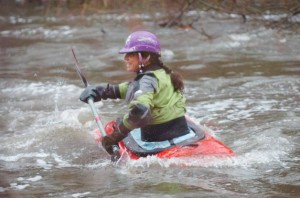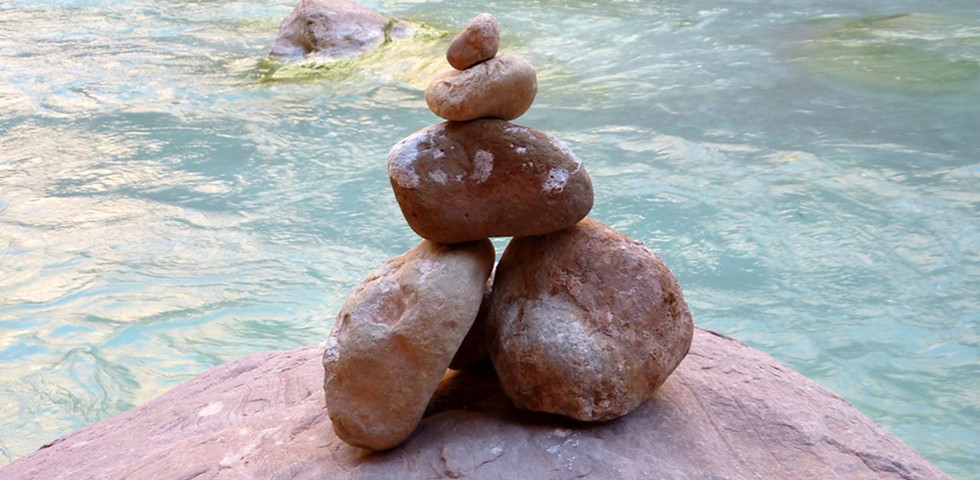Peak Experience at Work
28.4.2015 | 20:08

Peak Experience at Work
Why is it so hard to have a peak experience in the work place?
Through my adventures white water kayaking, I came to understand the concept of flow or peak experience.
In the beginning, I was so infatuated with the sport that I would try almost any river. My friends began taking me on rivers that I had no right to be on. I staggered and sputtered my way down the river often in complete terror wondering how I’d been talked into being there. I survived the experience but my runs were graceless, clumsy and lacked any kind of finesse. I was in pure survival mode. These experiences benefited me in one crucial way: I gained the knowledge that I could keep my head under pressure.
Other times, I would run a river that was easy for my skill level. I was told these were the times to practice my skills and try out moves that I could then try out on harder rivers. While it took discipline, it was this slowing down, focusing on my skills and being deliberate in my moves that helped make me a better kayaker. I would never become better if I were always on the outer edge of my ability.
Practicing on these easier rivers, I then took on harder challenges. My adrenaline would be up but not so high that I felt overwhelmed. I was alert and focused. I needed all my skills and all my presence to be successful on the water but I also had the sense that I was absolutely in control. I could master each rapid but I couldn’t take anything for granted. I felt elated.
This sensation is called peak experience or flow. It is quite well known in the spiritual world and the sports world but less prevalent in the work place.
Researchers say that the following are key components of flow:
- There are clear goals every step of the way.
- There is immediate feedback to one’s actions.
- There is a balance between challenges and skills.
- Action and awareness are merged.
- Distractions are excluded from consciousness.
- There is no worry of failure.
- Self-consciousness disappears.
In the work world, crisis mode happens. It is valuable to learn, just like on an overly hard river, that employees can handle the stress and come out the other side. It is, however, naïve to think that this mode is ideal or can go on continuously. At some point, management needs to slow things down, step back and assess what is going on. The adage “go slow to go fast” comes to mind. Without slowing down to develop sane strategies and workable systems, employees burn out and companies begin to fail.
In slower paced environments employees can be urged to use the opportunity to develop other skills. How might they change the current set up so that it is more interesting and engaging? How might they envision future projects and pave the way for them during these periods of calm? How can they use this time to prepare themselves for greater challenges down the road?
Organizations that capitalize on learning opportunities during slow periods can be better positioned to handle the crisis modes with more finesse and may even find their employees perfectly poised to manage the situation with flow-like grace.



Laura
April 28, 2015 | 9:17 pm
Two things strike me about your early experience on rivers that you thought were “too hard” for you–how you sputtered along gracelessly, but still went ahead and did it! 1– In the workplace it’s so important to let a person reach a goal following the path she needs to follow. We all work differently and it can be hard to watch someone do something in a way that seems “wrong”, but it’s important to find that balance of respectful support and autonomy. 2–the absence of punishment! I’m sure you were celebrated by your more experienced kayaking friends, rather than put down for your less advanced skill level, which kept you going and learning and accomplishing.